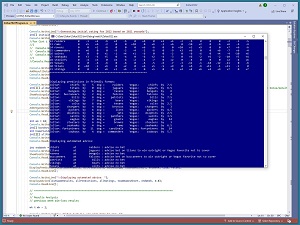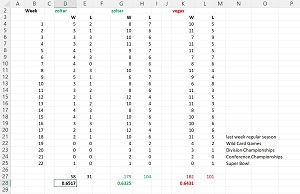In-Depth
Researchers Successfully Predict NFL Professional Football Scores
Three machine language researchers from different companies team up for system to beat Las Vegas oddsmakers, but only for research, not actual betting.
- By Pure AI Editors
- 04/03/2023
Researchers have demonstrated a computer program that successfully predicts the results of NFL (National Football League) American professional football games. The prediction system is called Zoltar, a reference to the arcade fortune teller machine. For the 2022-23 NFL season, Zoltar achieved 65% accuracy against the Las Vegas point spread.
Zoltar is the result of an informal collaboration among three machine learning researchers who work at three large tech companies. Zoltar is strictly a research project and isn't used for actual wagering.
Understanding Sports Wagering Against the Point Spread
The Zoltar program uses a combination of reinforcement learning and deep neural network technology to predict football results. The phrase "predicting football results" has several different meanings. Zoltar predicts against the point spread, which is best explained by an example.
 [Click on image for larger view.] Figure 1: Zoltar NFL Predictions in Action
[Click on image for larger view.] Figure 1: Zoltar NFL Predictions in Action
Suppose you are interested in an upcoming game between the Chicago Bears and the Detroit Lions. Several "sports books," mostly based in Las Vegas, publish an opening point spread such as "Lions -6.0 at Bears." This means the Lions are favored by six points and are playing at the Bears home field. If a person wagers money on the favored Lions, the wager will win only if the Lions win by more than six points. If the Lions win but by less than six points, or if the underdog Bears win by any score, the wager on the Lions loses.
Similarly, if the spread is Lions -6.0 at Bears, then if a person wagers on the underdog Bears, the wager will win if the Bears win by any score or if the favored Lions win but by less than six points.
If a favored team wins by exactly the spread, all wagers are a push (tie) and returned. Because of the possibility of a tie wager, point spreads are often values like 6.5, which eliminates ties.
Winning wagers do not pay even money. For example, a person might have to wager $110 in order to win $100 (plus the wager). At 11-10 odds, a prediction system must predict at 110 / (100 + 110) = 53% accuracy to break even. At 6-5 odds, a system must predict at 120 / (100 + 120) = 55% accuracy or better.
It's in the best interests of the sports books for money to be wagered evenly on the favorite and underdog teams. If most of the wagers are placed on one team, sports books will adjust the point spread to encourage wagers on the other team.
Zoltar Results
The Zoltar program computes the expected margin of victory between two teams. Zoltar then suggests a hypothetical wager when the difference between the computed margin of victory and the point spread margin of victory is greater than 4.0 points. For example, suppose the point spread is Lions -6.0 at Bears, meaning that the Lions are favored by six points. If Zoltar predicts that the Lions will win by 4.0 points, then no wager is suggested because the Zoltar prediction is close to the Vegas prediction. But if Zoltar predicts the Lions will win by 11.0 points, then Zoltar suggests a hypothetical wager on the Lions. Or, if Zoltar predicts the Lions will win, but only by 1.0 point, then Zoltar suggests a hypothetical wager on the Bears.
 [Click on image for larger view.] Figure 2: Zoltar Results
[Click on image for larger view.] Figure 2: Zoltar Results
The NFL has 32 teams. Each team plays 16 games so there are (32 * 16) / 2 = 256 games played during the regular season. In the 2022-23 season, one game was canceled due to a serious injury at the beginning of the game. There were 12 playoff games, plus the championship Super Bowl between the Kansas City Chiefs and the Philadelphia Eagles. For the 268 games, Zoltar made 89 suggestions and was correct 58 times and wrong 31 times for an accuracy of 58 / 268 = 65%.
What Does It Mean?
The Pure AI editors spoke to Dr. James McCaffrey from Microsoft Research. McCaffrey noted that the field of mathematical probability has its origins in gambling. "Probability can trace its roots to mathematician Gerolamo Cardano who wrote a book titled 'Games of Chance' in the mid-1500s," he said. "The Zoltar program was created to explore machine learning algorithms applied to problems where mathematics interacts with human psychology. For example, some people will bet with their hearts rather than with their heads, by wagering on the team located in the city where they live. If enough people do this, it can create mathematical imbalances between the point spread and a mathematically predicted margin of victory."
McCaffrey further added, "There are ethical factors involved with any form of gambling, including sports betting and financial betting in the form of investing in stock market securities. But the reality is that huge amounts of money are wagered, explicitly and implicitly, in these fields."
He concluded, "The machine learning principles used in Zoltar can be used for other forms of sports wagering, for example, over-under where the wager must predict the total points scored by both teams. And the Zoltar principles can be applied directly to basketball games."